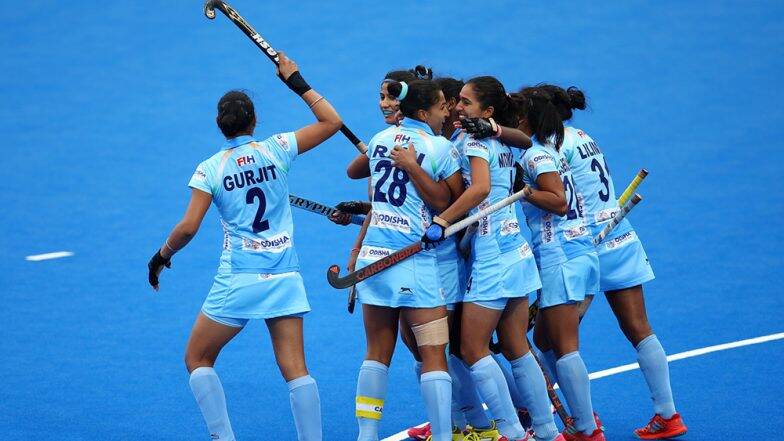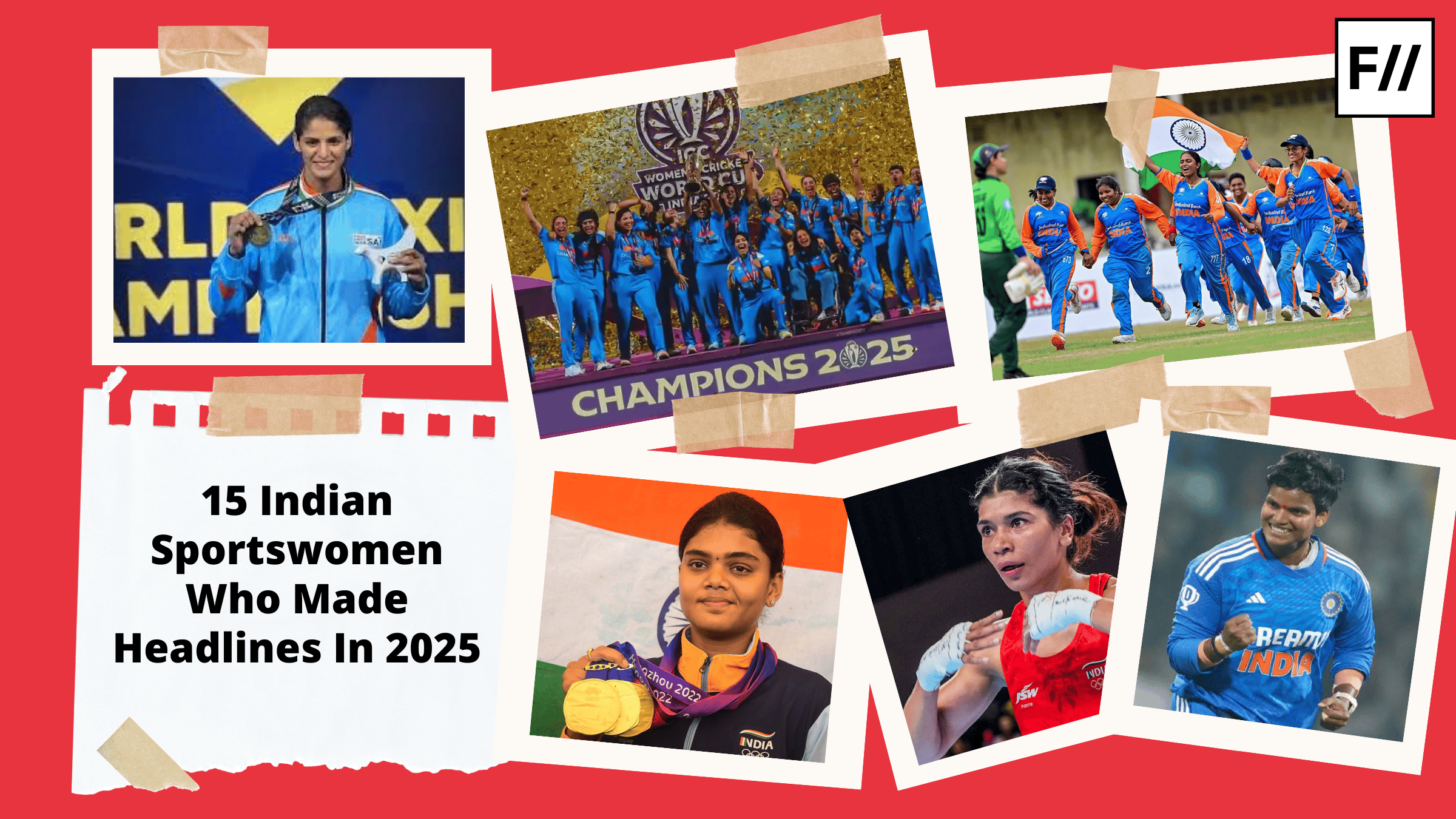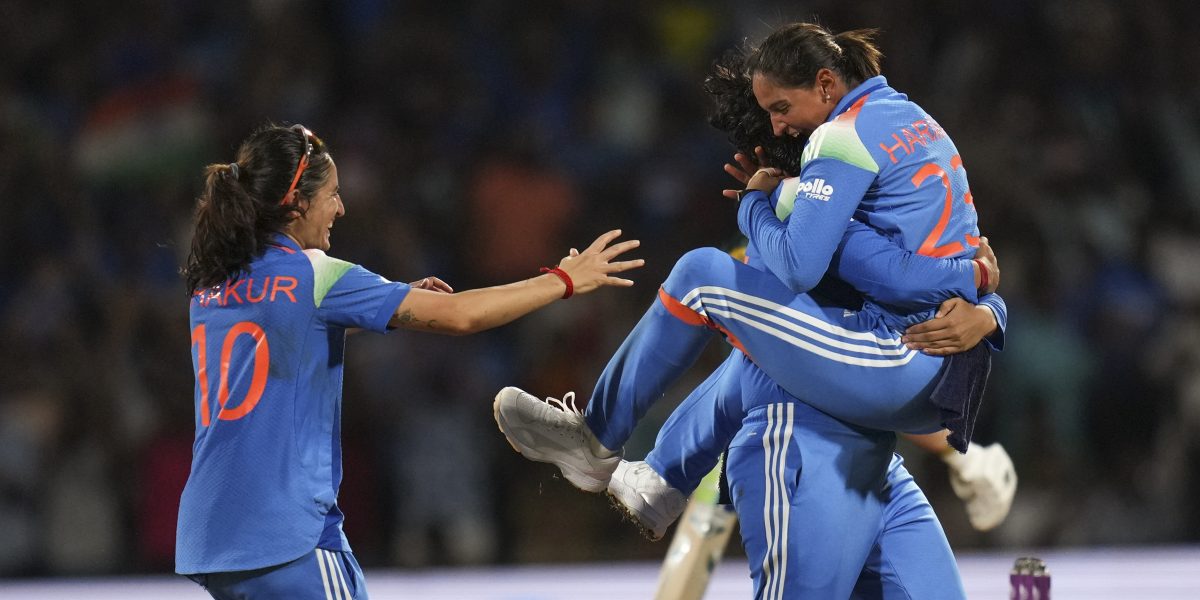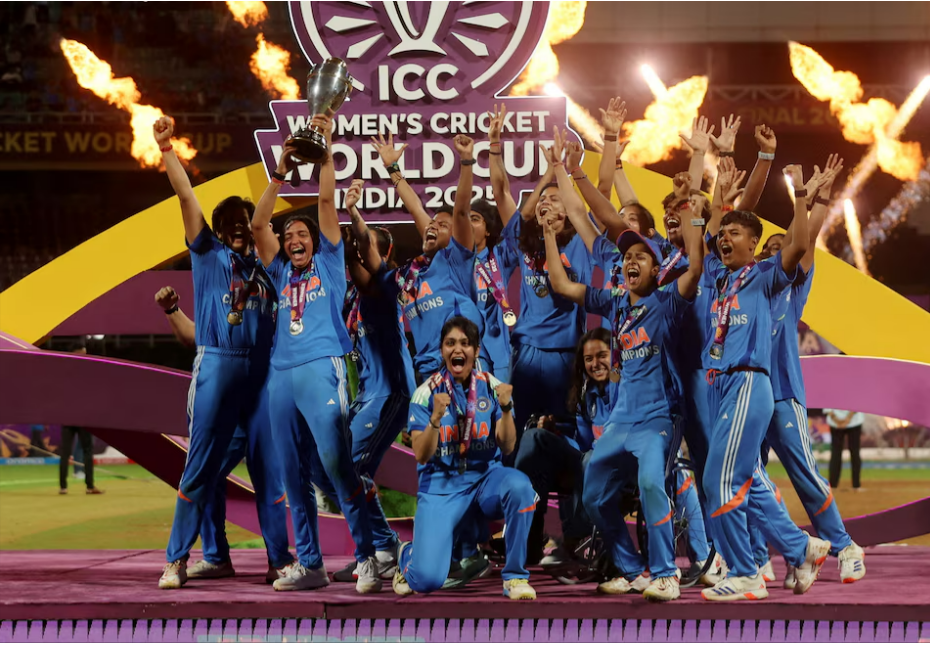While the men in blue are off to England and are making all 1.3 billion of us proud, the women are no behind. The Indian women’s hockey team beat hosts Japan 3-1 in the FIH Women’s Series finals held at Hiroshima.
While the Indian captain Rani Rampal gave India the initial lead (3rd minute), Gurjit Kaur scored the other two (45th and 60th minute) against Japan’s lone goal scored by Kanon Mori (11th minute). Rampal was also named the Best Player of the Tournament, while Kaur was the top-scorer.
Dominating the game from the beginning itself, India won their second penalty corner in the 9th minute, but also ended up with a foul from the execution. The Indian attack was strong enough to prevent the Japanese from making any more than two circle entries within the first fifteen minutes, one of which led to them scoring their sole goal, which was conceded by the Indian goalie Savita Punia.
India maintained possession of the ball for most of the second quarter, which saw a near-miss opportunity at a potential fourth goal by Vandana Katariya in the 18th minute. All of Japan’s attempts at getting into the rhythm fell short of scoring anymore than their one goal due to India’s defensive cohesion. In fact, India ended up making five circle entries compared to Japan’s zero, in the second quarter.
The Indian attack was strong enough to prevent the Japanese from making any more than two circle entries within the first fifteen minutes
Though Lilima Minz and Sushila Chanu Pukhrambam rotated the ball effectively to create more opportunities for the Indians to score their second goal, they failed to break the half-time tie 1-1 in the second quarter. The third quarter saw India win two penalty corners, thanks to a stepped-up pot-break attack strategy. This eventually led to a second goal in the 45th minute, this time scored by drag-flicker Kaur. The fourth quarter also saw effective rotation between Rampal and Navneet Kaur, who were unable to execute a goal due to the Japanese defence. The 2-1 lead was finally raised to 3 goals for India when Gurjit Kaur struck yet again in the 60th minute through a penalty corner, thereby clinching the tournament win for Indians.
Also read: Meet The Players Of The Indian Women’s Hockey Team
The FIH series is an international field hockey competition organised by the International Hockey Federation (FIH), which also serves as a qualifier for the Olympic Games. The Indian women’s hockey team is currently ranked as world no. 10. By qualifying for the finals, the team also secured their position in the 2020 Tokyo Olympics. Nicknamed Navbharna, the team won comfortably over Uruguay (4-1), Poland (5-0), South Korea (2-0), and Fiji (11-0).
The farther we keep going from men and cricket, the lesser media coverage and recognition from the masses. If we add up all the attention that the women’s hockey team has had since its breakthrough performance at Mandelieu in 1974, it would still figure considerably lower than the same given to Chak De! India in 2007 alone. It would not come as a surprise to see people name almost the entire team from the movie but not one player who is a part of the actual team. In fact, there is such little awareness of the team’s achievements that it is unknown to many that Chak De! India is not entirely fiction, but is based on the 2002 Commonwealth Games in Manchester. What is disheartening is that instead of finally giving women’s hockey the limelight it deserves, it ended up being all about Shahrukh Khan.
Glorification only after bagging tournament wins need to be replaced with regular coverage that would encourage more girls to engage in a field that is still highly male-dominated.
While each game played by the men’s cricket or hockey teams, regardless of the result, is scrutinized, analysed and discussed by the entire nation for days at end, their female counterparts win entire tournaments only to see the masses and mainstream media discuss them for a week at most, and then forgetting all about it. This not only affects the morale of the players but also has significant effect over the kind of funding they get and the resources that are provided to them. Glorification only after bagging tournament wins need to be replaced with regular coverage that would encourage more women to engage in a field that is still highly male-dominated. Making biopics about them does shed some temporary light upon female players and their achievements, but it later ends up being less about them, their struggles and the game and more about the actors.
Having given the country 18 Arjuna awardees is no small feat. The Indian women’s hockey team is one of the most diverse sports teams in the country, with players coming from various faiths and different parts of the country- something that is not very commonly seen in cricket. Men have already taken up enough space in every public sphere possible. In 2019, isn’t it high time that we begin sharing these spaces?
Also read: Asia Cup 2017: Indian Women’s Hockey Team Wins The Championship
References
Featured Image Source: Latestly
About the author(s)
Kavya is a student from Gurgaon, trying to study Economics and Sociology, but ends up spending all her time re-watching The Office. She is tiny and rolls her big eyes on those who say "i SuPpOrT wOmEn'S rIgHtS bUt NoT fEmInIsM".




